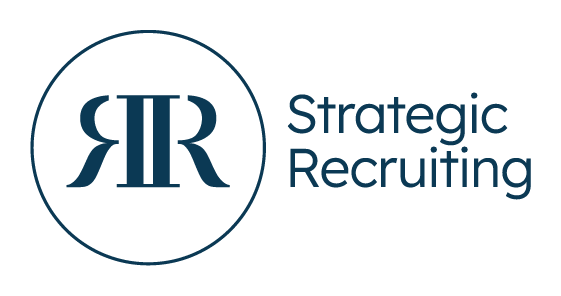What the heck is up with Gen-Z?
Why recruiting professionals must learn from and adjust to the generation’s demands
Every generation has and will face their own unique privileges and challenges as our ever-evolving world continues to spin. And today, in the realm of employment, Generation Z, born between the mid/late 1990s and early 2010s often finds itself under harsh scrutiny from older generations. They are often labeled as “entitled”, “unprofessional”, and “whiney”, and are frequently mocked by older generations for being “lazy” and unmotivated to work. This narrative does NOT ✨ slay ✨ and is not only wildly inaccurate but is most certainly a form of ageism. These biases towards Gen Z should have no place in recruiting processes and hiring decisions. Rather than inflicting harmful assumptions and biases on young Gen Z talent, recruiting professionals should learn from and adapt to the unique needs and demands of Gen Z, as they are the valued future of our organizations.
Undoubtedly, there's a reciprocal responsibility between generations to understand and adapt to each other's perspectives, however, Gen Z is confronted with a world vastly different from that of their predecessors, thus introducing unique hurdles that Gen Z must jump through. They are navigating unprecedented technological advancements, complex socio-political landscapes, ongoing economic uncertainties, and just beginning their careers as the detrimental effects of the COVID-19 pandemic are still being uncovered. Uniquely, the COVID-19 pandemic is an unprecedented global event unlike any other that most living generations today have experience, making this event an especially unique challenge for Gen Z. This is why as recruiting professionals, we have a vital role to play in empathizing with Gen Z to consider how the context of the generations unique challenges influence their professional skills and demands. We must use this perspective to grow our hiring processes to appropriately accommodate to Gen Z’s employment needs and preferences rather than perpetuate damaging biases that hinder their opportunities for fair consideration in the workforce.
The prevailing negative assumptions about Gen Z’s ability to perform in the workplace has been highlighted in multiple recent studies and articles. Statistics indicating that "3 in 10 hiring managers avoid hiring Gen Z candidates" as a result of interview experiences consisting of Gen Zer's asking for an unreasonably high salary, showing up unprepared, dressing inappropriately, acting entitled... the list goes on [Inserting my personal opinion here: Many of these are traits/actions our beloved Gen X and Baby Boomer parents could have leaned further towards in their careers to protect themselves from being taken advantage of by their employers, don’t ya think?]. Statistics like these present ageist assumptions made by hiring managers accompanied by vague and undefined evidence that holds little merit and can easily be reframed:
Asking for an unreasonably high salary can be reframed as requesting fair compensation in an unpredictable economy.
Showing up unprepared for an interview can be reframed as preparing sufficiently for one of an exhaustive number of interviews a Gen Zer must participate in to land an offer in an unpredictable, post-COVID job market.
Dressing inappropriately can be reframed as dressing appropriately enough for an interview that is virtual anyway (who would have thought wearing pajama pants to an interview would be possible one day?).
Acting entitled can be reframed as simply knowing one’s worth.
Many Gen Zer’s have witnessed their parents pour their souls into companies that have withheld fair financial compensation, enforced strict and miserable workplace cultures, and demanded excessive work hours, making missed cherished moments with loved ones a norm. Then, after it's all said and done, would lay them off in a heartbeat when profits took precedence. Witnessing the adults in their lives endure these callous work conditions with the added strain of enduring a global pandemic at a young age, all while maneuvering an intense and divided socio-political landscape has instilled in Gen Z a desire for fair treatment and respect in the workplace where they refuse to be taken advantage of or disregarded by employers who fail to recognize their worth.
Taking these contextual elements into consideration, recruiting professionals should recognize the persevering strengths of Gen Z, identify how these generationally-unique strengths can serve as a valuable asset to their organizations, and adapt their strategies accordingly. Gen Z is characterized by their passion and commitment topics such as climate action, social equity, mental health, technological innovation, and so much more. They have grown up in a world where technological innovation and social justice movements are at the forefront, and they are eager to contribute to meaningful and productive change. Employers who fail to recognize and harness these passions are missing out on valuable opportunities for innovation and growth.
In conclusion, recruiting professionals have a vital position in recognizing the hopeful potential of Gen Z and adjusting their recruiting and hiring practices accordingly rather than fixating on negative biases that exclude Gen Zers from the workforce. Recruiting professionals should seek to understand and leverage the unique strengths and perspectives that Gen Z brings to the table to promote workplace environments where all generations thrive. By championing social equity, improved work-life balance conditions, better workplace cultures, and more, Gen Z is demanding a better work life for ALL of us. For this, we owe them our gratitude.
And, regardless, if you don’t agree with Gen Z’s perspectives and demands--just wait until you meet Gen Alpha.
Author: Anisah Ahmed, Talent Acquisition Advisor
